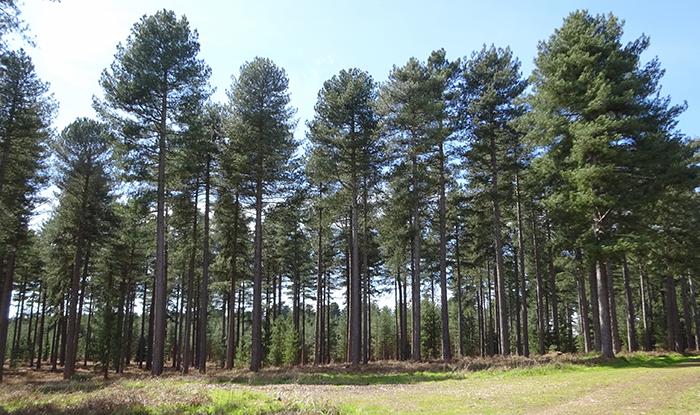
Submitted by Mutsuko Grant on Thu, 21/09/2017 - 15:08
Our recently published paper in Biotechnology for Biofuels
In a paper recently published in Biotechnology for Biofuels we are looking at a possible way to improve the processing of timber derived from conifers to feedstock used for sustainable manufacturing of novel biomaterials and biofuels. Softwood, as any other timber, is predominantly composed of plant secondary cell walls - an intricate matrix of polysaccharides and phenolic compounds which surround wood cells. Due to abundance of trees, plant secondary cell walls are the largest, renewable, resource of bioenergy on the planet.
In this work we engineer cell walls of a model plant Arabidopsis thaliana to evaluate which of its components are critical for maintaining the resistance of biomass to degradation to simple sugars. We discover that by genetic removal of Glucuronic acid branches from a polysaccharide xylan we can increase the yields of fermentable sugars by more than 300% compared to wild type plants. We use the sugars released from both types of biomass as a feedstock for bioethanol production and find out that the removal of glucuronic acid doubles the biofuel yields obtained from plant material.
The addition of glucuronic acid, which we have discovered to be a molecular determinant of biomass recalcitrance, is catalysed by GUX enzymes in A. thaliana. By mining large transcriptomic datasets we identify putative conifer GUX enzymes likely to be responsible for the addition of glucuronic acid onto softwood xylan. We then use biochemical and synthetic biology techniques to establish that a newly discovered gene – PgGUX is indeed an active glucuronic acid transferase encoded in a genome of White spruce (Picea glauca).
Importantly, Arabidopsis thaliana plants without glucuronic acid on xylan grow to the same height as wild type plants and produce the same amount of biomass. Therefore, we believe that the identification and characterisation of conifer GUX enzymes will allow for creation of conifer trees which can provide a superior feedstock for biofuel production. Finally, as improvement in sugar release observed for plants without active GUX enzymes is measured without any chemical or thermal pre-treatment of biomass, this work may support innovation in industrial processes looking for more environmentally benign ways of processing timber.
Publication details;
Lyczakowski J, et al. Removal of glucuronic acid from xylan is a strategy to improve the conversion of plant biomass to sugars for bioenergy. Biotechnology for Biofuels 2017 10:224. DOI: 10.1186/s13068-017-0902-1
OpenAcess full text available at: https://biotechnologyforbiofuels.biomedcentral.com/articles/10.1186/s13068-017-0902-1
